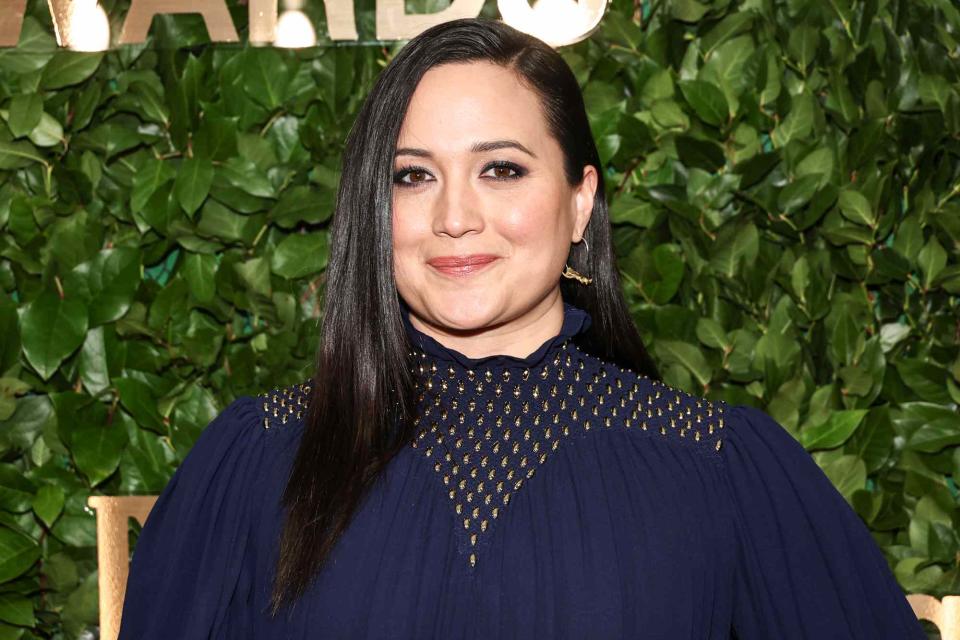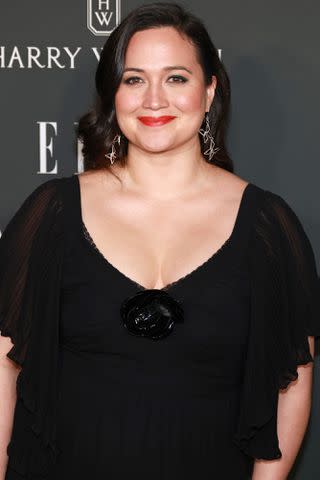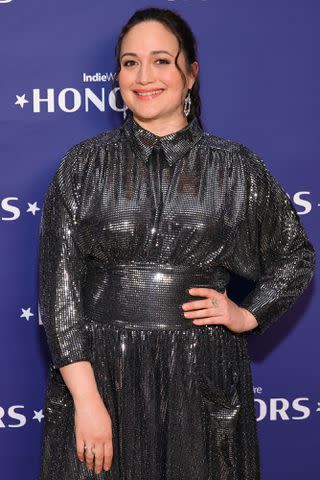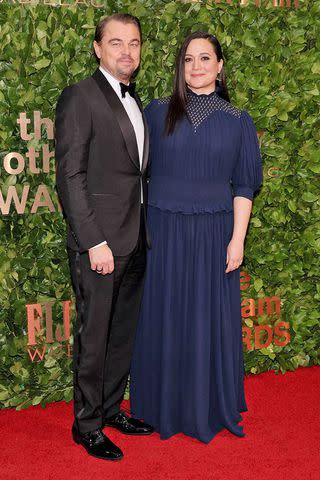Lily Gladstone on Why She Uses She/They Pronouns: A Way of 'Decolonizing Gender for Myself' (Exclusive)
“In most Indigenous languages, Blackfeet included, there are no gendered pronouns,” says the 'Killers of the Flower Moon' actress, who has Blackfeet and Nez Perce heritage

Jamie McCarthy/Getty
Lily GladstoneLily Gladstone is opening up about pronoun preferences.
In an interview with PEOPLE, the Killers of the Flower Moon star, 37, explains why she feels comfortable being referred to as both she and they.
“I remember being 9 years old and just being a little disheartened, seeing how often a lot of my boy cousins were misgendered because they wore their hair long,” explains Gladstone, who has Blackfeet and Nez Perce heritage. She was raised on the Blackfeet reservation in Montana for the first decade of her life.
“It happens to a lot of kids, I think, especially Native boys leaving a community where long hair is celebrated [and then] just kind of getting teased for it,” continues Gladstone, whose profile on X also mentions she/they pronouns. “So I remember back then being like, everybody should just be they.”
Related: In Their Own Words: Stars on Their Gender Identities

Kayla Oaddams/FilmMagic
Lily Gladstone“And in most Native languages, most Indigenous languages, Blackfeet included, there are no gendered pronouns. There is no he/she, there's only they,” Gladstone adds.
“It doesn't happen as much anymore, but there've been several times in my life where I've been speaking to a northern Cheyenne-first language speaker [or another] Indigenous-first language speaker where they'll accidentally misgender you when they're talking to you,” says Gladstone. “And then they'll get embarrassed about it, but it's because they've learned English later.”
“So Blackfeet, we don't have gendered pronouns, but our gender is implied in our name. But even that's not binary,” says Gladstone, adding that her grandfather’s Blackfeet name meant “Iron Woman.”
“He had a name that had a woman's name in it. I'd never met my grandfather. I wouldn't say that he was nonbinary in gender, but he was given a woman's name because he kind of carried himself, I guess, the way that women who have that name do,” continues Gladstone.
“And there were lots of women historically and still now who are given men's names. They fulfill more of a man's role in society as far as being provider, warrior, those sort of things,” she says.
“So, yeah, my pronoun use is partly a way of decolonizing gender for myself.”

Matt Winkelmeyer/IndieWire via Getty
Lily GladstoneGladstone adds that her pronoun use is a way of “embracing that when I'm in a group of ladies, I know that I'm a little bit different. When I'm in a group of men, I don't feel like a man. I don't feel [masculine] at all. I feel probably more feminine when I'm around other men.”
“In ceremony, a lot of times where you sit in the circle is a gendered thing,” Gladstone continues. “I happen to sit in circles that are very embracing of all of our people. And I've seen people change where they sit in the circle based upon how they're feeling that day.”
As far as gendered awards categories that separate actor and actress, Gladstone, who is nominated for best actress at the Golden Globes and Critics Choice Awards, has nuanced feelings.

Dia Dipasupil/WireImage
Leonardo DiCaprio with costar Lily Gladstone on Nov. 27, 2023.“I think it's really cool that we're seeing ‘performer’ and we're seeing everybody brought in together. I do feel that historically having gendered categories has helped from keeping women actors from a lot of erasure because I think historically people just tend to honor male performances more,” says Gladstone.
“I know a lot of actresses who are very proud of the word ‘actress’ or are very proud of being an actress,” adds Gladstone. “I don't know, maybe it’s just an overly semantic thing where I'm like, if there's not a 'director-ess,' then there shouldn't be actresses. There's no 'producer-ess,' there's no 'cinematographer-ess.’ ”
For more on Lily Gladstone, pick up the latest issue of PEOPLE, out now.
For more People news, make sure to sign up for our newsletter!
Read the original article on People.
